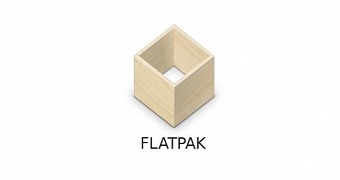Coming three weeks after the release of Flatpak 0.6.14, the new 0.8 stable series of the open-source and cross-distro Linux application sandboxing and distribution framework (formerly XDG-App) has landed today, December 21, 2016.
Announced by Alex Larsson on the project's GitHub page, Flatpak 0.8.0 appears to be only a bugfix release laying the groundwork for the next major series, 0.9.x, which will sport a bunch of exciting new features. It requires OSTree 2016.14, but it's recommended to use OSTree 2016.15.
"This is the first release in a new series of stable releases called 0.8.x. New features will be added to 0.9.x, and only bugfixes will be backported to 0.8.x. The featureset of this release is a good base to target if you're creating flatpaks that should be widely usable," reads the release announcement.
flatpak-builder gets several improvements, "-y" option supported by default
Among the improvements added in Flatpak 0.8.0, we can mention that Flatpakrepo files now support a RuntimeRepo= key that can point to a flatpakrepo file, dependencies are now supported when installing bundles, the OCI support has been updated to the latest OCI spec version, and the "--bundle" and "--from" options were made optional.
Furthermore, it looks like the "-y" option is now enabled by default to avoid interactive prompts when installing Flatpaks, a regression in the document portal that occurred when attempting to add named files was fixed, the build-import-bundle command now signs the commit if a GPG key is specified, and flatpak-builder got several changes.
Last but not least, Flatpak is now capable of reading configuration files from the /etc/flatpak/installations.d directory on GNU/Linux distributions where it is supported, which adds support for multiple system-level installation paths that can be accessed with a brand-new "--installation=..." argument on most commands. Flatpak 0.8.0 is coming soon to a distro near you!

 14 DAY TRIAL //
14 DAY TRIAL //